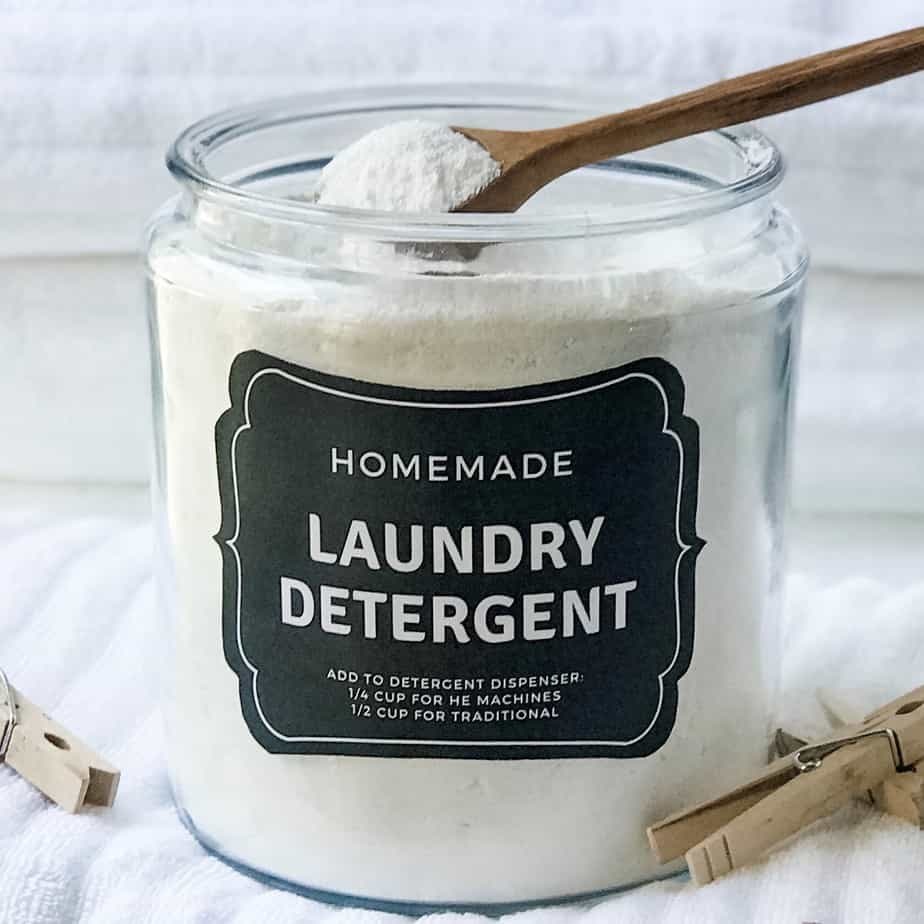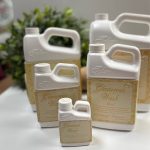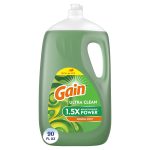Introduction to Homemade Laundry Detergents
The idea of creating your own laundry detergent at home has gained popularity. More people are turning to DIY recipes. They want detergents that are effective and safe for their families. Homemade detergents offer a range of benefits. They can save money and reduce exposure to harmful chemicals found in store-bought options.
Many common laundry cleaning agents may contain ingredients hazardous to your health. Substances such as synthetic fragrances, bleach, and phosphates can cause skin irritation. They can even have long-term health effects. By making your own detergent, you control the ingredients. You ensure that only safe, natural components touch your clothes and skin.
A straightforward homemade laundry detergent recipe can work wonders. It needs just a few key ingredients. These include washing soda, baking soda, and natural salts. They combine to effectively clean your clothing. At the same time, they keep your household environment non-toxic.
The simplicity of making your own detergent is another draw. It often involves mixing a handful of readily available materials. When you make your detergent, you get a sense of satisfaction. You know precisely what’s cleaning your clothes. Plus, it’s an opportunity to contribute to a healthier planet.
Ready to learn more about the essential ingredients that make a homemade laundry detergent dependable and safe? Let’s explore them in the next section. We will ensure you have the best homemade laundry detergent recipe at hand. One that keeps your clothing clean, fresh, and safe from harmful chemicals.
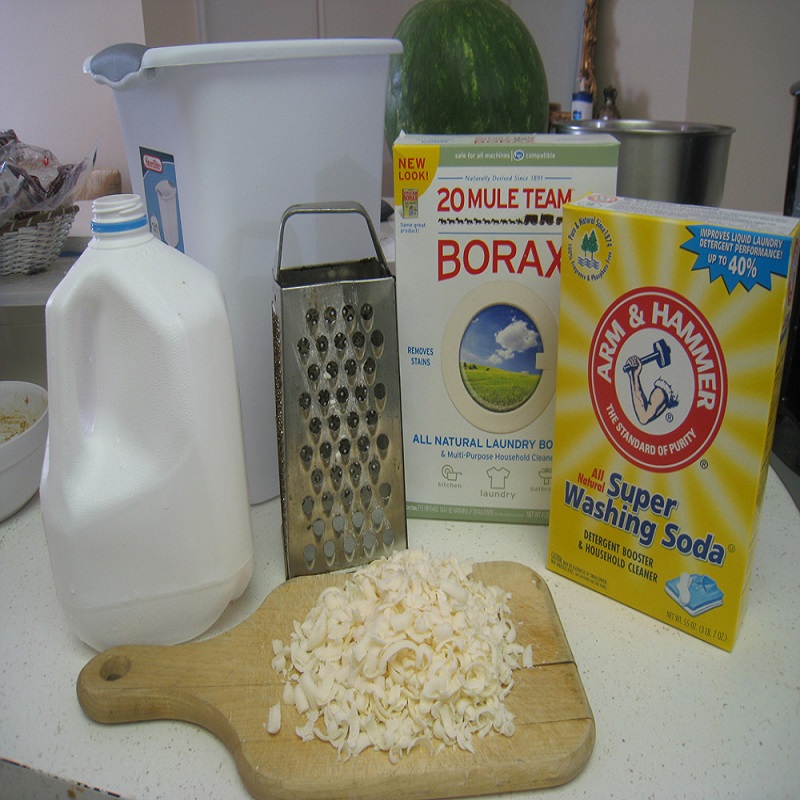
Essential Ingredients for Effectiveness and Safety
When it comes to making the best homemade laundry detergent recipe, a few key ingredients are vital for ensuring that your clothes come out clean without compromising safety. Here’s what you need to include:
- Washing Soda: This powerful cleaning agent helps remove stains and neutralizes odors. It’s also great for tackling grease and grime.
- Baking Soda: A natural deodorizer, baking soda also softens water, which can enhance the effectiveness of your detergent.
- Natural Salts: Ingredients like Epsom salt or sea salt can help to soften fabrics and maintain vibrant colors.
- Essential Oils: While optional, adding essential oils can give your laundry a fresh scent without the harsh chemicals found in synthetic fragrances.
These ingredients, when combined, create a potent mix that can rival the cleaning power of store-bought detergents. Additionally, they are free from irritants like phosphates, dyes, and synthetic fragrances which can cause skin irritation and other health concerns.
Moreover, not only do these ingredients clean effectively, but they are also safer for both your family and the environment. Using natural and readily biodegradable components reduces the amount of harmful chemicals released into waterways.
When preparing your DIY detergent, ensure all ingredients are thoroughly mixed. This prevents any residue on clothes, which could happen if components like washing soda do not dissolve properly.
A final note of importance is to double-check the safety of each ingredient, particularly if you have specific allergies or sensitivities. While natural, some individuals may have reactions to certain substances. Always do a patch test with a small batch of detergent before fully integrating it into your regular laundry routine.
Step-by-Step Guide: Making Your Detergent
Creating your own laundry detergent at home is straightforward. By following these simple steps, you’ll have a batch ready in no time. This guide ensures that you create a detergent that’s both effective in cleaning and safe for your family.
- Gather Ingredients: Ready your washing soda, baking soda, natural salts, and optional essential oils.
- Mix Washing Soda and Baking Soda: In a large container, combine equal parts of washing soda and baking soda.
- Add Natural Salts: Mix in your natural salts like Epsom or sea salt to help soften the water.
- Include Essential Oils: If desired, add a few drops of essential oils for fragrance. Popular choices include lemon or lavender.
- Stir Thoroughly: Ensure all ingredients are well-mixed to avoid residue on clothes post-wash.
- Store Properly: Keep your homemade detergent in a dry, airtight container away from moisture.
- Use: Typically, one tablespoon per load is enough. Adjust depending on the load size.
Remember to label your detergent clearly and keep it out of reach of children and pets. Hand-mixing is usually sufficient, but a food processor can ensure a finer blend. Always test on a small batch of laundry first to ensure it suits your needs. The right ratios depend on your local water hardness and laundry type.
This recipe aligns well with the best homemade laundry detergent recipe searches. It’s eco-friendly and avoids harsh chemicals. Plus, it’s gentle on clothes while being tough on dirt.
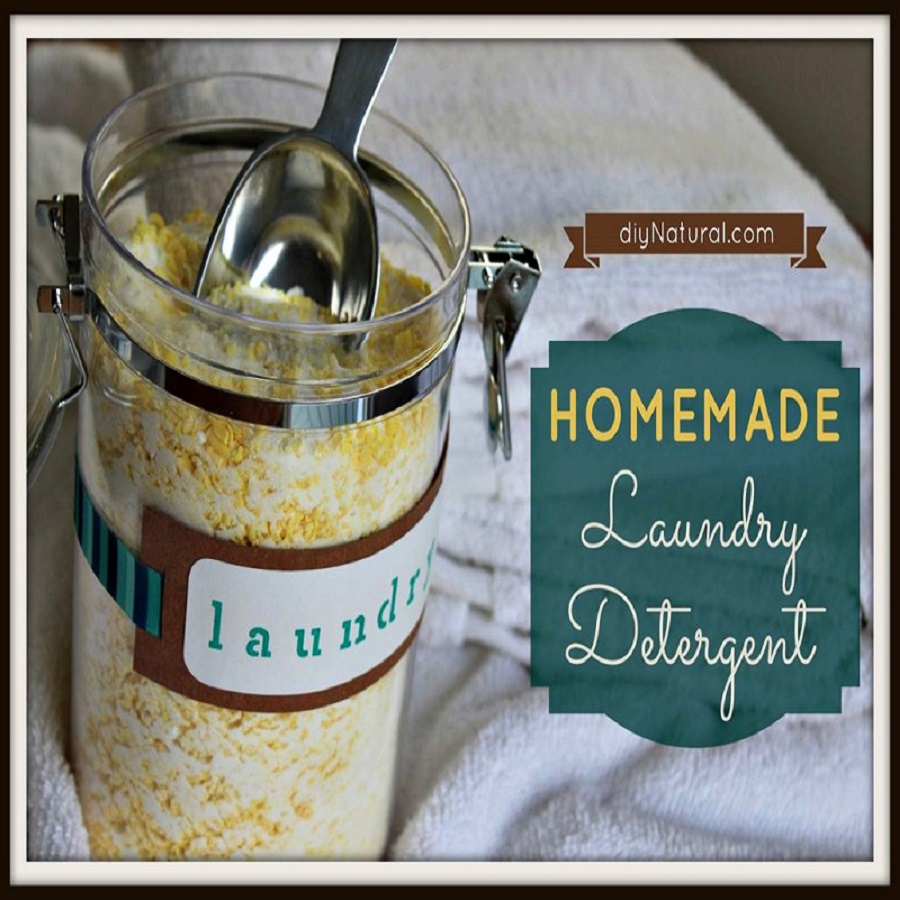
Pros and Cons of DIY vs. Store-bought Detergents
Making your own detergent has both pros and cons compared to buying from the store. Here is a breakdown of these to help you decide which is best for you.
Advantages of DIY Laundry Detergent
- Cost Savings: Making detergent at home can be cheaper than store-bought options. You control the quantity and save on packaging.
- Fewer Chemicals: DIY recipes often use natural ingredients, lowering exposure to harmful chemicals.
- Customizable Scents: You can choose your favorite essential oils for a personalized fragrance.
- Eco-Friendly: Homemade detergents usually have less environmental impact due to natural ingredients and minimal packaging.
Disadvantages of DIY Laundry Detergent
- Time Investment: Preparing your detergent takes time and effort.
- Inconsistent Results: It might take a few tries to get the cleaning power just right.
- Short Shelf Life: Natural ingredients may not last as long as commercial preservatives.
- Limited Efficacy: DIY detergents may not always clean as well as high-powered store brands, especially for tough stains.
Advantages of Store-bought Detergent
- Convenience: Commercial detergents are ready to use and widely available.
- Consistent Quality: Store brands are professionally formulated for reliable results.
- Longer Shelf Life: Preservatives ensure a longer expiration date.
- Advanced Cleaning: Some store detergents offer specialized cleaning for different fabrics.
Disadvantages of Store-bought Detergent
- Cost: Buying detergent can add up faster than making your own.
- Chemical Exposure: They may contain irritants and environmentally hazardous substances.
- Strong Fragrances: Artificial scents can be overpowering and cause allergic reactions.
- Waste Production: Packaging contributes to more household and environmental waste.
Considering these factors can guide you to the best laundry solution for your household. Whether you opt for the best homemade laundry detergent recipe or a natural store brand is a personal choice. It depends on your budget, time, and values regarding health and sustainability.
Health and Environmental Impacts of Laundry Ingredients
Understanding the health and environmental impacts of laundry ingredients is crucial. The ingredients you choose for your homemade laundry detergent not only affect the cleanliness of your clothes but also have broader implications.
How Laundry Ingredients Affect Health
Many store-bought laundry detergents contain chemicals that can be harmful. Substances like VOCs, synthetic fragrances, and bleach may lead to health issues such as skin irritation and allergic reactions. By choosing safer, natural ingredients for your homemade recipe, you minimize the risk to your and your family’s health.
Environmental Considerations
Ingredients in many commercial detergents may harm the environment. Phosphates and certain dyes, for instance, can cause water pollution. This affects marine life and can disrupt ecosystems. By making your own detergent with eco-friendly components, you contribute to a healthier planet. You also ensure that your household waste is minimized.
The Importance of Choosing Safe Ingredients
Selecting the right ingredients for your homemade laundry detergent is vital. It ensures the safety of your home’s environment and supports ecological balance. Opt for natural salts, washing soda, and essential oils to keep your laundry routine green. Remember, every choice you make has the potential to influence the world around you, for better or worse.
Tips for Optimizing Homemade Detergent for HE Washers
Making your own laundry detergent can be great. But, if you have a high-efficiency (HE) washer, you need to be careful. Here are tips to make sure your DIY detergent works well in HE machines.
- Use Less: HE washers need less detergent. Try one tablespoon per load. Add more if needed.
- Dissolve First: Mix detergent with a bit of hot water. This helps it dissolve faster in low-water HE washers.
- Avoid Suds: Too many suds can harm HE machines. Choose ingredients that make fewer bubbles.
- Check Cleanliness: After washing, check clothes for residue. If there’s buildup, use less detergent next time.
- Regular Maintenance: Clean your HE washer often. This keeps it working well with homemade detergents.
By following these tips, your homemade laundry detergent should work just fine in your HE washer. It’s all about using the right amount and making sure it dissolves properly.
Alternatives to Homemade Detergent: Natural and Eco-friendly Brands
For those who prefer not to make their own detergent, there are natural and eco-friendly brands available. These brands offer a range of benefits similar to homemade recipes, but without the need to create the mixture yourself. It’s important to choose products from companies that prioritize both the health of consumers and the environment. Here are some key points to consider when selecting a store-bought natural laundry detergent:
- Ingredient Transparency: Look for brands that disclose all their ingredients, avoiding any with ‘fragrance’ or ‘parfum’ as these can hide a multitude of chemicals.
- Eco-Certifications: Select detergents with certifications from reputable organizations, confirming their eco-friendly practices.
- Plant-Based Formulas: Opt for detergents that use plant-derived ingredients, rather than synthetic chemicals, for a gentler wash.
- Packaging: Give preference to detergents in recyclable or compostable packaging to minimize waste.
- Cruelty-Free: Ensure the brand does not test on animals, aligning with ethical consumerism.
- Efficiency in HE Washers: If you own a high-efficiency washer, check that the detergent is compatible and won’t produce excess suds.
Some well-known natural brands include Ecover, Seventh Generation, and Biokleen. There are also subscription-based brands like Dropps that deliver eco-friendly laundry pods straight to your door. These options provide convenience and eco-consciousness in one package. Always do your research to find the best fit for your household and values. It’s a personal choice, rooted in a desire for cleanliness and a healthier planet.
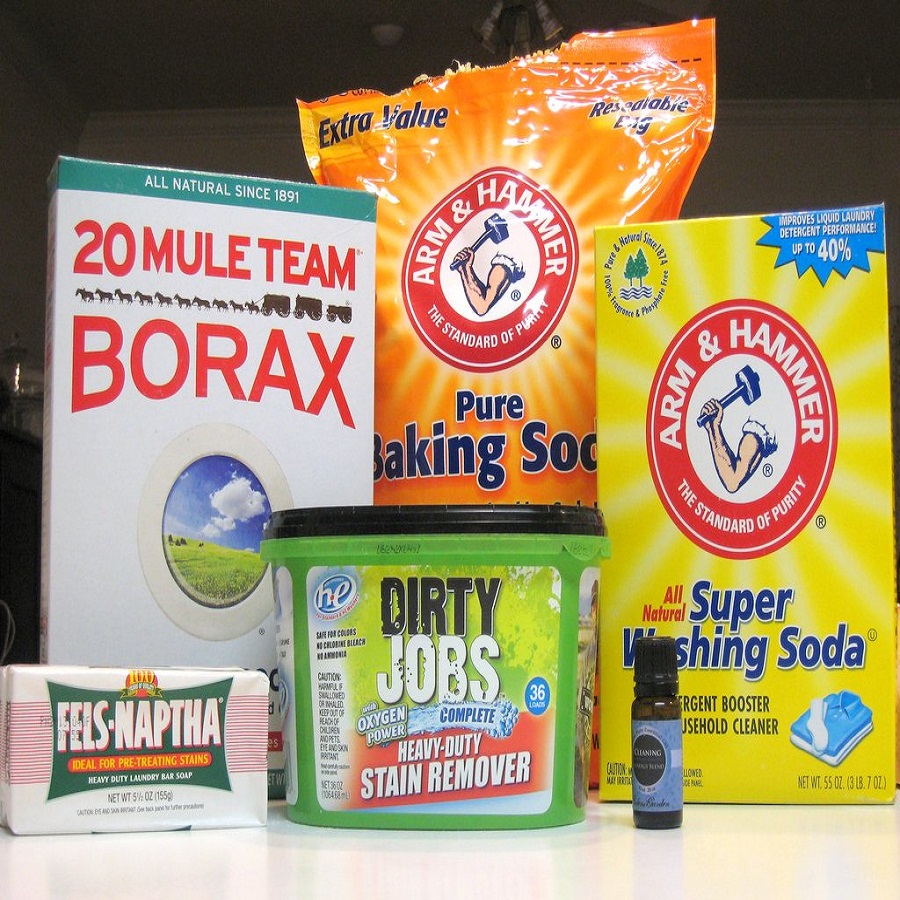
Common Concerns and FAQs about Homemade Laundry Products
Engaging in the creation of homemade laundry detergent often leads to queries and uncertainties. Here, we aim to address some of the most common concerns and frequently asked questions to provide clarity and confidence in your DIY pursuits.
Is Homemade Laundry Detergent Safe for All Fabrics?
Most homemade detergents are safe for various fabrics, due to their natural ingredients. However, conduct a spot test on delicate items to ensure compatibility.
Will DIY Detergent Work in Cold Water?
Yes, homemade detergents dissolve well in cold water, performing effectively in energy-saving wash cycles.
How Long Does Homemade Laundry Detergent Last?
If stored in a dry, sealed container, homemade detergent can remain potent for up to six months.
Can I Use Homemade Detergent in HE Washers?
Certainly. Use less than the standard amount, as HE washers require less soap due to low-water usage.
Will My Laundry Smell as Fresh Without Synthetic Fragrances?
Natural essential oils can impart a subtle, pleasant scent to your laundry without harsh chemicals.
Is It Really Cost-Effective to Make My Own Detergent?
It can be. You control the ingredients and quantities, which often leads to savings over purchasing brand-name detergents.
How Can I Enhance the Cleaning Power of My Homemade Detergent?
For tougher stains, pretreat with a baking soda paste or white vinegar before washing. You can also increase the washing soda proportion slightly.
Remember, creating the best homemade laundry detergent recipe is about finding what works for your unique laundry needs while prioritizing safety and sustainability. Don’t hesitate to tweak the recipe until you find your perfect match.
